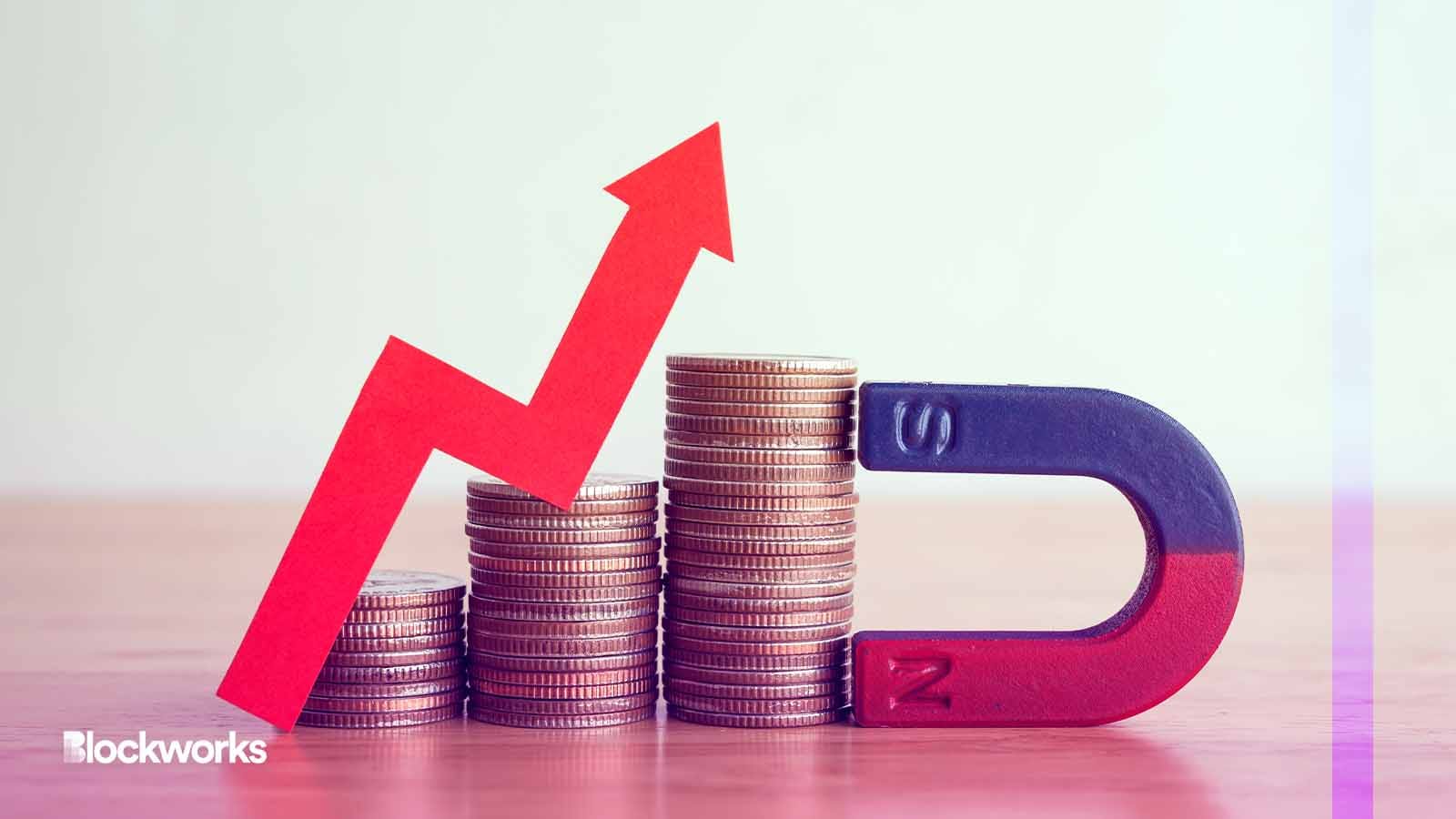Coinbase’s diversified revenue model is paying off
In its most recent quarter, Coinbase earned more from subscriptions and services than they did from transaction fees

Pla2na/Shutterstock modified by Blockworks
While analysts anticipated a “bloodbath,” quarterly earnings for Coinbase shattered expectations, thanks to a change in revenue strategy, according to Mike Ippolito.
Revealed recently in their Q2 earnings report, subscriptions and services contributed 51% of their revenue, he says.
“They actually did more from subscriptions and services than they did from transactions,” Ippolito says on the Bell Curve podcast (Spotify/Apple), with second quarter transaction revenues falling 13% from the previous quarter.
Ippolito recalls Coinbase CEO Brian Armstrong speaking about the shifting revenue model last year, saying that “eventually, subscriptions and services are going to make up a very large part of our revenue.”
“And to their credit, they’ve done it — and they’ve done a very good job at it.”
Framework Ventures co-founder Michael Anderson was also surprised by the success of the subscription model. “Predictable revenue growth is exactly what Wall Street wants,” he says. “The best way of having a successful business that has predictable revenue growth is something that isn’t transaction-based.”
Competing transaction fee models often devolve into a “race to zero,” Anderson says, noting that transaction volume is “highly cyclical” in nature.
“As the crypto market ebbs and flows what seems to be every three or four years,” he says, “transaction revenue is going to ebb and flow with that.” The shift to a subscription and service model is “fundamentally important” for the long-term success of Coinbase,.
Anderson adds that revenues that stem from staking have been surprisingly positive. “The new target of how much ETH is going to be staked,” he says, “is higher than basically anybody else predicted.”
Anderson says that at the time of the Ethereum merge, fears circled around the potentially “massive withdrawal queue” of large quantities of ETH.
“In fact, the withdrawal queue has been effectively at zero for the last two months and the queue to become a validator has been at 60 to 70 to 80,000 waiting, which is about a month of time,” he says. Anderson expects the quantity of ETH staked to continue to climb. “I wouldn’t be surprised if we ended the year at 30 to 40 million ETH staked.”
In addition, Anderson expects that federal interest rates are expected to stay “higher for longer.”
“That gives a great cover for Coinbase USDC to continue to make money off of their interest income,” he says. Anderson expects Coinbase to continue to “outperform” by generating interest income, which he says gives them “plenty of time to build up blockchain rewards, custodial fee revenue, [and] other subscriptions.”
The layer-2 chain, Base is also “getting a lot of attention right now,” he says. “Not many people fully understand the ramifications of having a blockchain that you own and derive revenues from, that people actually want to use.”
More ways to monetize
Ippolito sees an “interesting opportunity” for Coinbase to solve blockchain identity issues with Base, employing a divergent approach from Worldcoin’s controversial proof of personhood iris-scanning system.
Ippolito suggests that Coinbase has created a new category between centralized finance and the “wild west of DeFi,” finding a “middle ground.”
“It still has the spirit of crypto, but they can add in a little bit — do things like proof of personhood for people from the exchange, for instance.”
Anderson imagines a future possibility to attach a customer’s identity-verified Coinbase wallet to the Base wallet with a permanent KYC (know-your-customer) NFT. “The different types of applications that you can assume, now that the 40 million Coinbase customers all have a verified wallet address, is huge,” he says.
“That opens up the aperture lens for new types of financial products, specifically for US persons, because KYC is a requirement for that.”
Get the news in your inbox. Explore Blockworks newsletters:
- The Breakdown: Decoding crypto and the markets. Daily.
- 0xResearch: Alpha in your inbox. Think like an analyst.






